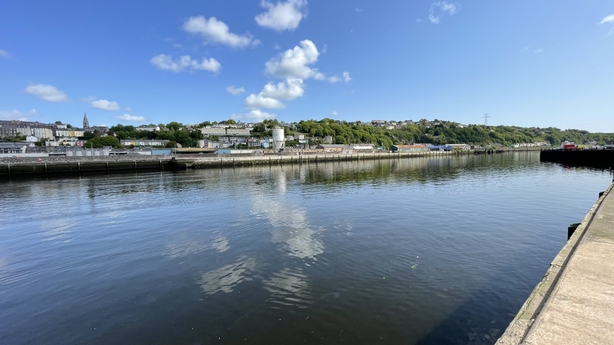The Port of Cork Company has confirmed that it has had engagement with the Department of Integration's International Protection Procurement Service (IPPS) about the provision of accommodation for international protection applicants.
It follows a statement from the department earlier this week in which it said it was exploring options for "floating accommodation", in the context of what it described as a severe accommodation shortage.
RTÉ News understands that Penrose Quay and Horgan's Quay are among the options explored in contacts between IPPS and the Port of Cork. Both quays are located close to Cork city centre.
A spokeswoman for the Port of Cork Company said that no "definite" location has been identified at this time.
She described the discussions as being "at a very early stage".

Confirmation that the Government is evaluating the possibility of using floating accommodation, or so-called floatels, to accommodate people seeking asylum and international protection in Ireland came in a statement earlier this week from the Department of Integration.
"It [the department] is working hard on alternative solutions that will allow it to shelter people in the time ahead, including offers of floating accommodation," the statement said.
Other countries are also being consulted on their experiences of providing such floating accommodation.
The statement said the IPPS "continues to evaluate and progress the potential use of floating accommodation such as cruise ships and floatels to accommodate international protection applicants".
IPPS is also consulting with domestic stakeholders, such as the Maritime Unit of the Department of Transport.

The statement said that it was "not possible to comment on specific proposals at this point", and made no comment on the engagement between IPPS and the Port of Cork Company.
The idea of using floatels to accommodate asylum seekers was considered more than 20 years ago by the Fianna Fáil-Progressive Democrat coalition government.
The Cabinet at the time decided against proceeding with the plan, in part due to negative experiences in countries like Denmark which discontinued the practice.







